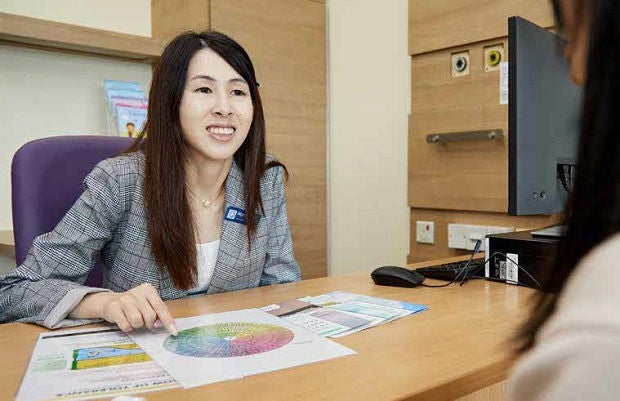SingHealth Institutions will NEVER ask you to transfer money over a call. If in doubt, call the 24/7 ScamShield helpline at 1799, or visit the ScamShield website at www.scamshield.gov.sg.
Trauma support for healing and recovery

Patients may experience traumatic stress reactions for a long time after a traumatic experience, and a team of clinical psychologists is on hand to help.
The birth of a child should be a joyous occasion; but, for some mothers, it can be a traumatic experience. Similarly, childhood should be the most carefree period of one’s life; but, for some children, it too can be a period of anguish.
The Psychosocial Trauma Support Service (PTSS) of the KK Women’s and Children’s Hospital (KKH) provides professional support to women and children who have had traumatic experiences. It runs outpatient clinics and inpatient services for both women and children, offering timely psychological review and intervention that are essential to reduce distress and prevent long-term health implications.
Apart from traumatic birthing experiences, women may also suffer psychological trauma from sexual and/ or relationship violence and losses. In children, the most common cases of trauma seen by PTSS are for accidental injuries such as falls, burns, or neardrownings, as well as non-accidental injuries such as abuse, said Dr Melissa Chang, Principal Psychologist, PTSS, KKH. Some patients may continue to experience traumatic stress reactions for a prolonged period, at times impacting their daily functioning, relationships, sense of safety and self-worth. Some may even self-harm or attempt suicide.
With support available at PTSS, patients can regain or improve quality of life. Clinical psychologists who specialise in providing trauma assessment and intervention for children three to 18 years old, and women, offer psychological support to patients, helping them to better cope with the aftereffects of traumatic experiences.
For women and children who have experienced traumatic event, PTSS provides evidence-based psychological therapy to reduce their distress. This can include reducing avoidant behaviours (i.e., avoiding places, people, things, thoughts, memories and feelings that remind them of the event), resuming engagement in activities and relationships, and increasing their self-efficacy to better manage traumatic stress. If needed, PTSS also educates family members to provide better understanding of psychological trauma. This empowers the families to support their loved ones in managing symptoms.
“We are in the midst of increasing trauma screening for women who have experienced sexual violence and traumatic birthing experiences or losses, developing e-learning trauma modules for KKH professionals, and providing a range of in-service talks to create a trauma-informed culture as well,” said Dr Chang.
For both women and paediatric patients, PTSS usually collaborates with clinical counsellors and medical social workers to manage risks around safety and for case management matters, including management of patients' psychosocial stressors — such as financial assistance, spousal or familial relationships — that could affect their mental health and ability to engage in therapy.
Community programmes
PTSS also believes in enhancing the community’s capability to provide psychosocial support to children, youth and their families after crises or traumatic events. It works closely with medical and allied health professionals, community organisations, and schools to minimise trauma-related distress and symptoms among children, women and their families.
“We want to expand our network of professional collaborations. We have organised talks on trauma-related issues to community providers, including counsellors from Care Corner, Singapore Association for Mental Health, and the public, in addition to providing training on ways to manage crises and traumas,” said Dr Chang.
PTSS has also created social media campaigns using animated videos targeted at youths and their families to raise trauma awareness and encourage affected individuals to seek support when needed. Some past community projects by PTSS include developing crisis response prevention plans with selected community partners such as counselling centres and agencies. There are also resources like storybooks and engagement tools for preschool children that can be used by parents and community partners.
With training on how to be empathetic and mindful of their body language, tone of voice, and choice of words, healthcare and community professionals too can help build rapport with and instil a sense of psychological safety in the patient. They can also empower patients to make informed choices by explaining the required procedures, symptoms to look out for, and treatment options. By organising network sessions with its community practitioners, both these practitioners and the PTSS team have learnt from one another’s practice in trauma work, said Dr Chang.
Read more: Tips to cope with postnatal depression from a Senior Psychiatrist at KK Women's and Children's Hospital. Click here.
Get the latest updates about Singapore Health in your mailbox! Click here to subscribe.
Keep Healthy With
© 2025 SingHealth Group. All Rights Reserved.



















